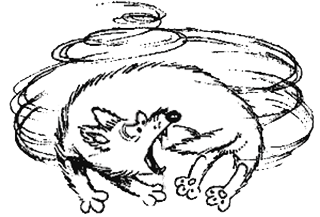

|
||
|
|
|
Hallo again to all. Not long ago the primates of the Anglican Global South met in Singapore. At the end of their meeting, they issued a communiqué titled 'Fourth Trumpet from the Fourth Anglican Global South to South Encounter'. Shortly thereafter the Singapore edition of the Christian Post published an article entitled 'New Power Brokers Discuss Future of Anglicanism'. Before launching into the substance of that article, which is a set of interviews with important people who attended that meeting, the writer notes: 'The next major milestone for the Communion appears to be the Anglican Covenant, a document leaders hope would clearly articulate the Anglican faith, and a real system of authority.' The running theme of the interviews in the Christian Post article was power, authority, and structure. Even the title refers to 'power brokers' and not 'holy men' or 'holy persons' (they are, though, all men). The headline of each interview gives the name and title of the man being interviewed, then goes on to say, in the style of a regimental report, 'Primate of the 90,000-strong Church of the Province of Emerald City'. It is clear that the reporter is impressed by strength and power, and it would appear that most of the subjects of his interview share that feeling. Certainly many of them express opinions about the need for power and authority and discipline. It's a long article, 15 pages or so (depending on what 'page' means to you), but we read it all carefully. While reflecting on what we had read, we remembered the book Renewing Parish Culture: Building for a Catholic Future by John Piderit and Melanie Morey, published in 2008. In that book, Fr Piderit and Dr Morey argue that the secret to recovery and long-term survival of the Roman Catholic church is greater inclusion of women and less attention paid to the central power of the Vatican.  A
few days later we read a report
by Ruth Gledhill in The Times (London) entitled 'Church factions in theological battle
for soul of Cardinal Newman' in which she notes that '... [There] rages a theological battle
for the soul of Cardinal John Henry Newman and of the Roman Catholic Church itself.' First
power and authority, and now warfare. A
few days later we read a report
by Ruth Gledhill in The Times (London) entitled 'Church factions in theological battle
for soul of Cardinal Newman' in which she notes that '... [There] rages a theological battle
for the soul of Cardinal John Henry Newman and of the Roman Catholic Church itself.' First
power and authority, and now warfare.
The best short answer that we know of to the question 'What is the difference between Anglicanism and Roman Catholicism', by Bishop Pierre Whalon, boils down to it being a question of human authority. Anglicans have no powerful person in charge, no pope. We couldn't help but think about Jesus' phrase, as noted by Matthew, Mark, and Luke: But many who are first will be last, and the last first. [Mark
10:31] It was almost a catchphrase. Topsy turvy. First and last. But it was mysterious and metaphoric as well as literal. We suspect that anyone who claims to fully understand these passages is blowing smoke.
So here we are in the year 2010 with arguments about power, and who should have it, and what its purpose should be, and how it relates to the structure of the church (and whether that structure has anything to do with belief or faith). The Vatican, centre of power in the Roman Catholic church, has noticed that some Anglicans have started talking as though having more power and control would make things better, has offered to be in charge, to keep their power, if only Anglicans would submit to it. Power is so tricky, isn't it? Meanwhile leading thinkers† in the Roman Catholic church, having read the reports that its size and influence are shrinking while that of Islam is growing, have speculated that pushing towards a more decentralized Anglican-like structure, inclusive of women, might help reverse this trend. Ah, grasshopper, the way to keep power is to relinquish it. The cure for woes of the powerful is to be less powerful; the cure for woes of the power-hungry is to have more of it? The first shall indeed be last, but perhaps the last shall instead be off at brunch after a Sunday-morning bicycle ride. At least no one, even in Zimbabwe, has started referring to vestments as 'uniforms' or parishes as 'platoons'. See you next week.
|
This web site is independent. It is not official in any way. Our editorial staff is private and unaffiliated. Please contact editor@anglicansonline.org about information on this page. ©2010 Society of Archbishop Justus. Please address all spam to press@anglicansonline.org |